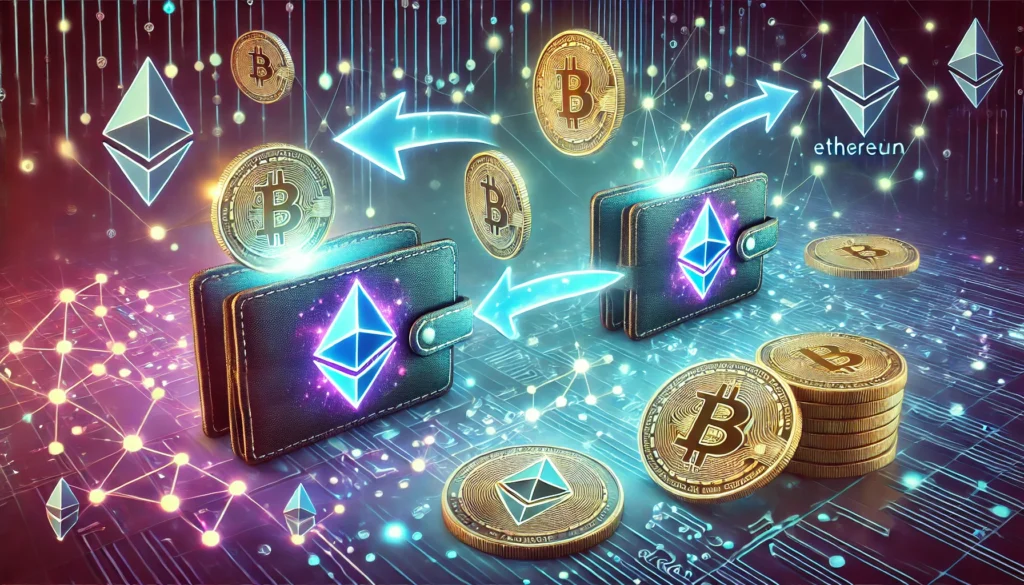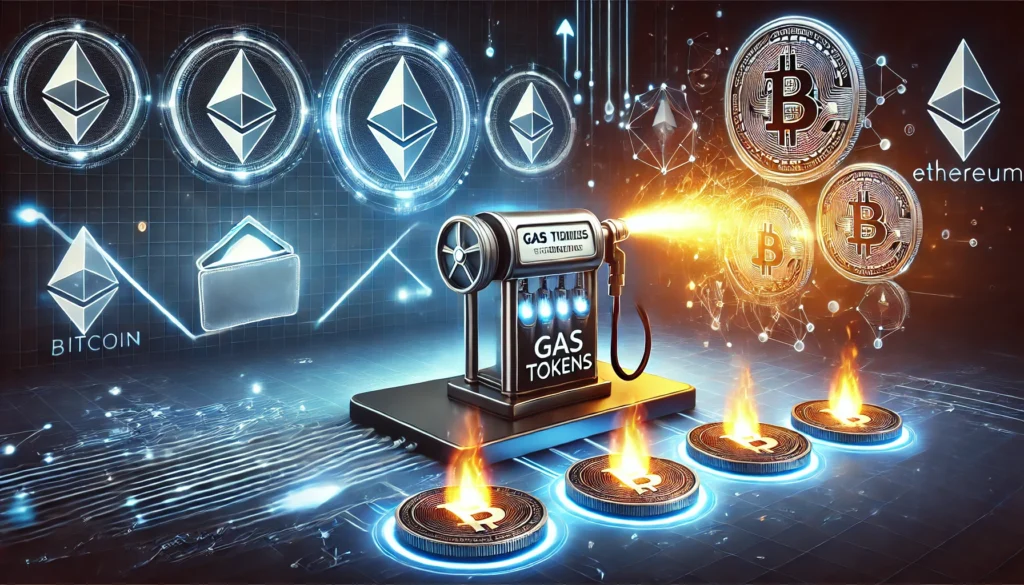Crypto Masterguide: A Comprehensive Guide to Swapping Tokens and Navigating the Blockchain
Swapping tokens on the blockchain can be both thrilling and challenging, especially if you’re new to the world of decentralized finance (DeFi). By connecting your wallet to decentralized exchanges (DEXs), you can exchange one cryptocurrency for another seamlessly. But there’s more to token swapping than meets the eye. From understanding gas tokens to navigating token approvals, this guide covers every aspect of the process, ensuring you’re ready to trade confidently.
What Are Token Swaps on the Blockchain?

At its core, token swapping is the process of exchanging one cryptocurrency for another, similar to trading fiat currency for goods or services in traditional markets. On blockchain networks, tokens are the digital assets used to transact. For example, Ethereum (ETH) serves as the native currency on its network and is widely used to facilitate token swaps.
When swapping tokens, the blockchain records the transaction, ensuring transparency and immutability. This decentralized approach eliminates intermediaries like banks, giving you full control of your assets.
Gas Tokens and Their Role in Transactions

Gas tokens are crucial for any blockchain transaction. They are used to pay transaction fees, compensating miners or validators who process and secure the network. On Ethereum, for instance, ETH is not only the primary token but also the gas token.
How Much Gas Do You Need?
Gas fees vary depending on the blockchain and network congestion. A general rule of thumb is to keep a reserve of at least $10 worth of gas tokens for most transactions. On Ethereum’s mainnet, where fees are higher, having $50 worth of ETH is recommended.
Planning ahead ensures you won’t face interruptions due to insufficient funds for gas fees. This is especially vital when network activity spikes, as fees can increase significantly during those times.
Understanding Token Approvals on EVM Blockchains
Token approvals are a security measure on Ethereum Virtual Machine (EVM) compatible chains such as Ethereum, Binance Smart Chain, and Avalanche. When you attempt to transact with tokens other than the native gas token of these blockchains, you’ll need to grant permission for the specific token you wish to use.
Key Points About Token Approvals:
- Gas Tokens: Transactions using the native gas token (e.g., ETH, BNB) do not require approvals.
- Non-Gas Tokens: Any other token, such as USDC or DAI, requires explicit approval to interact with smart contracts.
- Infinite Approvals: Some decentralized applications (dApps) default to requesting unlimited token approvals. While this may seem convenient, it can expose your wallet to potential risks. Always approve only the necessary amount and periodically revoke unused approvals for better security.
The Step-by-Step Process for Swapping Tokens
Now that you understand the basics, here’s a simple walkthrough of how to swap tokens on any DEX:
- Visit a DEX Platform: Choose a reliable platform such as Uniswap or PancakeSwap.
- Connect Your Wallet: Use non-custodial wallets like MetaMask or Trust Wallet.
- Select Input and Output Tokens: Choose the token you want to sell and the one you wish to buy.
- Approve Tokens (if needed): Grant permissions for non-gas tokens.
- Initiate the Swap: Confirm the transaction and sign it using your wallet.
- Verify on Blockchain Explorer: Check the transaction status to ensure it’s successful.
Real-Life Example: Swapping ETH to USDC on Base
For a hands-on demonstration, let’s swap ETH for USDC on Base, an Ethereum Layer 2 solution:
- Check Gas Funds: Ensure you have enough ETH for gas fees.
- Choose a DEX: Platforms like Aerodrome Finance are popular options.
- Connect Wallet: Use a compatible wallet such as MetaMask.
- Select Tokens: Input ETH as the token you’re selling and USDC as the one you’re buying.
- Enter the Amount: Specify how much ETH you want to swap. Since ETH is the gas token, no additional approval is required.
- Confirm the Swap: Review the details and confirm the transaction.
Once completed, the transaction will be visible on Base’s blockchain explorer.
Popular DEX Platforms Across Blockchains
Decentralized exchanges vary by blockchain, each offering unique features and liquidity options. Here’s a quick reference list:
| Blockchain | Top DEX | Gas Token |
|---|---|---|
| Ethereum | Uniswap | ETH |
| Binance Smart Chain | PancakeSwap | BNB |
| Polygon | Uniswap | MATIC |
| Solana | Raydium | SOL |
| Avalanche | Trader Joe | AVAX |
For optimal trading, choose the DEX with the highest liquidity on your chosen blockchain. This reduces slippage and increases the likelihood of successful transactions.
DEX Aggregators: A Smarter Way to Trade
If you’re unsure which DEX to use, consider a DEX aggregator like 1inch (for Ethereum-based chains) or Jupiter (for Solana). These tools compare rates across multiple platforms, routing your trades through the most efficient paths to minimize fees and maximize value.
Cautionary Tips for Token Swaps
- Double-Check Token Addresses: Fraudulent tokens can mimic legitimate ones. Use verified contract addresses from trusted sources like CoinGecko.
- Monitor Gas Fees: Use tools like Etherscan’s gas tracker to estimate transaction costs.
- Limit Approvals: Always restrict token permissions to the exact amount you intend to swap.
FAQs
What is a decentralized exchange?
A decentralized exchange (DEX) is a platform where users can trade cryptocurrencies directly without intermediaries, relying on smart contracts to execute transactions.
Why do gas fees vary?
Gas fees depend on network congestion, the complexity of the transaction, and the blockchain’s base fee rate.
Can I cancel a transaction once it’s submitted?
Most blockchain transactions are irreversible once confirmed. However, you may attempt to replace or cancel unconfirmed transactions by increasing the gas fee.
What are the risks of infinite token approvals?
Infinite approvals leave your wallet vulnerable to unauthorized transactions. Always approve limited amounts to enhance security.
How do DEX aggregators work?
DEX aggregators scan multiple exchanges to find the best trading routes, optimizing fees, slippage, and rates for your token swaps.
What happens if I don’t have enough gas tokens?
Transactions will fail if there’s insufficient gas to cover fees. Always maintain a gas token reserve.
Conclusion
Swapping tokens on the blockchain opens up a world of possibilities in the decentralized finance space. By understanding the mechanics of token approvals, gas fees, and using trusted DEX platforms, you can trade securely and efficiently. Whether you’re exploring new tokens or managing your portfolio, this guide ensures you’re equipped to make informed decisions in the ever-evolving world of DeFi.















Leave a comment